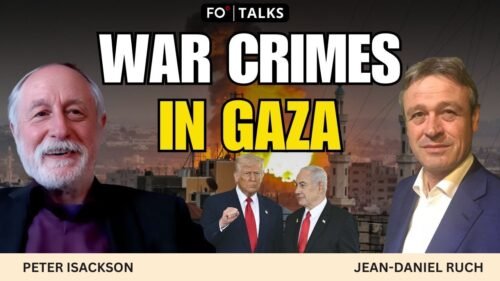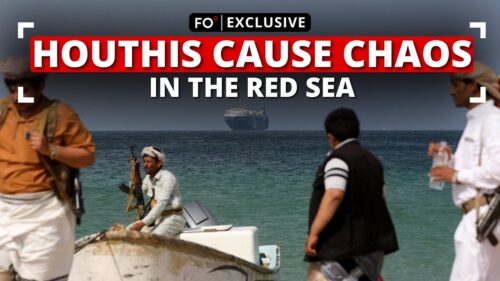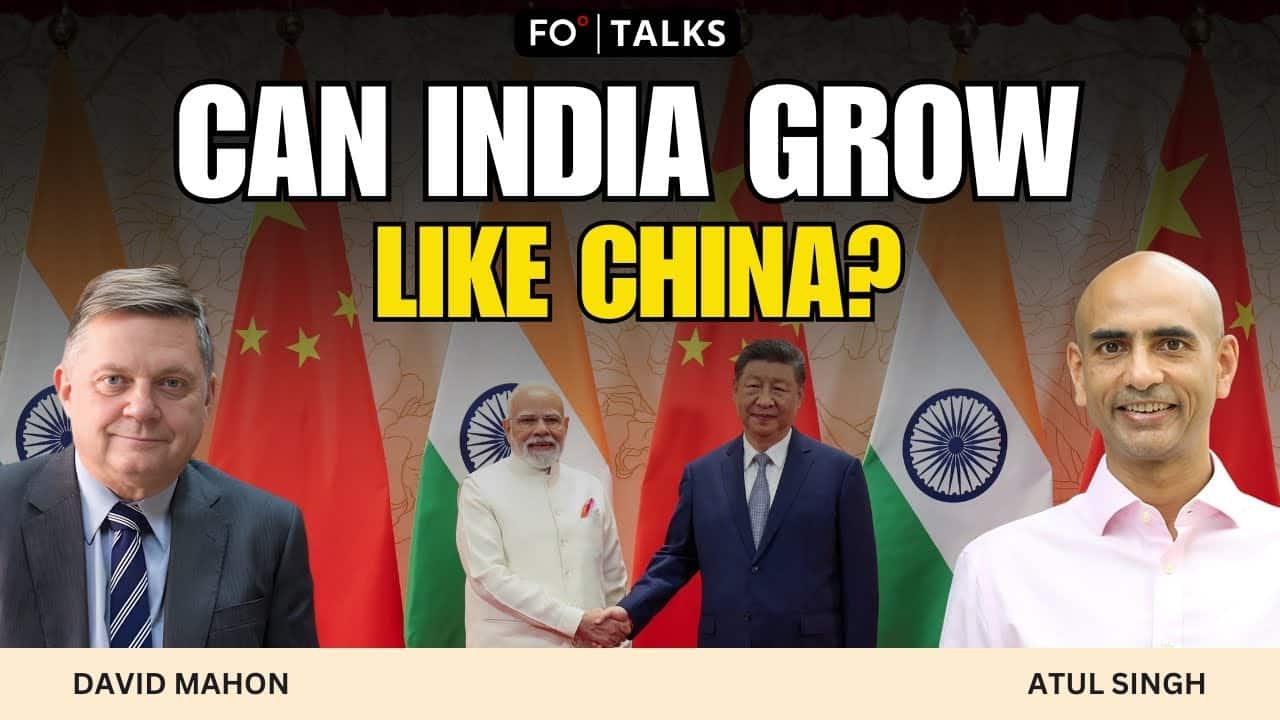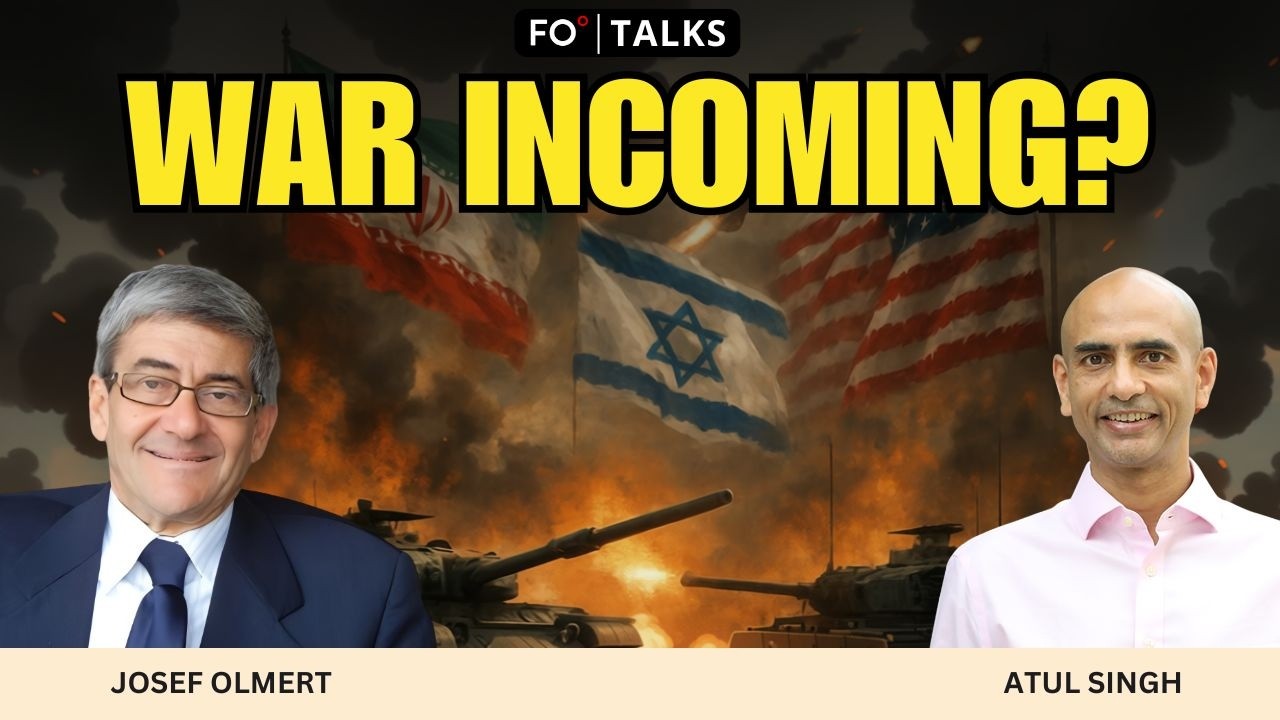[As of the filming of this episode, Iran has not mined the Strait of Hormuz, nor does anyone know for certain that they will.]
Fair Observer’s Video Producer & Social Media Manager, Rohan Khattar Singh, talks with Abdullah O Hayek, an independent Middle East analyst and peace fellow at Young Voices. Hayek assesses Iran’s potential deployment of sea mines in the Strait of Hormuz. He covers the immediate consequences for global shipping and energy markets. He also examines the nation’s capital, Tehran’s, strategic aims, the credibility of the regime’s threat, and the economic, diplomatic and military costs Iran faces.
Disrupting a critical energy chokepoint
Hayek stresses that mining the Strait of Hormuz would instantly threaten one of the world’s most vital energy arteries. The waterway is extremely narrow — less than two miles wide in certain areas — and carries 18 to 20 million barrels of oil and over a billion cubic feet of liquefied natural gas (LNG) each day. This amounts to about 20% of global seaborne petroleum and roughly a quarter of all LNG traded internationally.
Even without detonations, the detection of mines triggers a freeze in tanker traffic as maritime insurers withdraw coverage. Hayek estimates that a small mining campaign halts flows within a week and that clearing a safe corridor takes a month or longer. This causes an immediate and severe energy crisis.
Oil prices spike from $70 to $150 per barrel, hitting Asia’s major importers — China, India, Japan and South Korea — with rationing, higher fuel costs and industrial slowdowns. Gulf producers like Saudi Arabia and the United Arab Emirates can offset only about half the lost supply. Beyond energy, freight rates surge, supply chains from electronics to agriculture suffer and vulnerable economies face recessionary pressure.
Asymmetrical maritime deterrence
Hayek frames Iran’s approach as part of a broader asymmetrical deterrence strategy that already includes proxies, drones and missiles. Sea mines extend this into maritime warfare. US intelligence recently observed Iranian vessels loaded with mines after US strikes in June, though none were deployed. Hayek sees this as deliberate signaling — a show of capability intended to raise the global costs of escalation.
Historical precedent reinforces the threat: During the Iran–Iraq War of the 1980s, mining the Gulf sharply drove up oil prices. Domestically, Iran’s parliament passes a near-unanimous, symbolic resolution to close the Strait, underscoring internal unity behind this maritime narrative. Regionally, such a move warns Gulf states and US bases of Tehran’s ability to disrupt their energy lifelines at will. Globally, it aims to strengthen Iran’s position in nuclear or sanctions talks.
A credible and diverse arsenal
Iran’s mines need to be taken seriously. Hayek cites estimates of 5,000 to 6,000 mines in the country’s arsenal, including bottom, contact, acoustic, pressure-sensor, drifting, limpet and rocket-assisted types. This variety, he argues, makes the Gulf “a living hell” for shipping. Even partial mining can be nearly as effective as a full closure, as the threat alone deters operations.
Iran’s naval capabilities, including midget submarines, fast attack boats, drone swarms and missiles, complicate clearance operations and heighten risks for countermine forces. Hayek’s conclusion is unequivocal: Iran has the means, geography and intent to create serious disruption.
The costs of escalation
Hayek also outlines why Iran may hesitate:
- Economic costs: Mining the Strait effectively cuts off its own oil exports — 1.5 to two million barrels per day — much of which goes to China. For an already-sanctioned economy, losing this revenue is “economic suicide.” Short-term price spikes do not compensate for lost volume.
- Diplomatic costs: Major customers like China, India, Japan and South Korea condemn the move. Even Russia may caution against it as short-sighted. Gulf states could accelerate alternative pipelines and LNG routes, permanently eroding Iran’s leverage.
- Military costs: A closure attempt justifies a broad US-led military response, potentially resembling the 1991 coalition against Iraq. Such action could inflict civilian casualties, damaging Iran’s domestic legitimacy and fueling regime-change sentiment.
Washington’s calculus
Turning to US politics, Hayek notes US President Donald Trump’s longstanding opposition to new wars and emphasis on ending existing conflicts. Within the Make America Great Again movement, there is strong resistance to direct intervention, even in the face of Iranian provocations. Hayek argues that deploying US troops to Iran would be “Iraq 2.0” — a decade-long conflict with global and domestic consequences.
Instead, Hayek recommends that Washington equip regional allies to manage the crisis, resorting to military measures only if diplomacy fails. Iran, he warns, is “the most difficult hardened adversary” the United States has faced. It has a tricky blend of population size, missile capability, drones and asymmetrical naval tactics that complicates any conventional campaign.
Regional power and the question of regime change
Hayek states his personal support for regime change in Tehran but insists it should come from within, led by Iranians themselves. Iran continues to wield regional influence through asymmetrical tools while remaining an international pariah, isolated economically and diplomatically. Total collapse appears unlikely in the near term, though economic crisis, severe inflation, mass protests, elite divisions and major military losses could open a path to change.
Hayek cautions that foreign intervention only strengthens the regime’s image and rallies nationalist support, as seen during the June conflict. The most plausible path to change, he argues, is sustained domestic protest and strategic patience from global powers.
To conclude, Khattar Singh notes that Iran still sees itself in an ongoing struggle with regional and global powers. The Strait of Hormuz, the Red Sea and the broader Middle East remain volatile despite pauses in open fighting. Hayek’s analysis underscores that while mining the Strait could give Iran short-term leverage, the long-term costs — economic, diplomatic and military — risk being devastating for both Tehran and the global economy.
[Lee Thompson-Kolar edited this piece.]
The views expressed in this article/video are the author’s own and do not necessarily reflect Fair Observer’s editorial policy.












































Comment